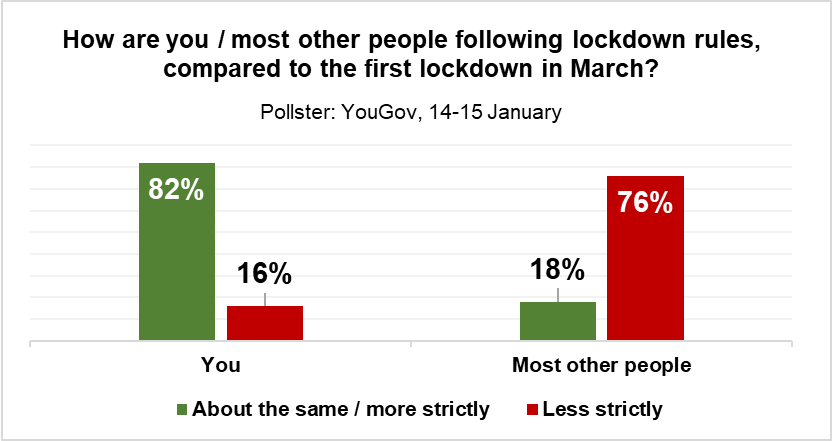An excellent illustration of why (user) research should:
-ask people about what they did in a specific case, never what they do in the abstract
-ask people only about themselves, never what they believe others want or do
-ask people about what they did in a specific case, never what they do in the abstract
-ask people only about themselves, never what they believe others want or do
If you only ask "what do you do?" you'll get an answer that sounds suspiciously like what the instruction manual says. But if you ask "walk me through the last time you did this" you'll suddenly hear a lot of deviations, each exception with its own "reasonable explanation."
We naturally see ourselves in the most charitable way because we have insight into our own intentions. Our own omissions become "one-offs" that fade from memory while others' mistakes feel like grievous errors or even malicious intent.
Even if the "what do you do" was valuable - who cares? Real life creates frictions that pop up constantly and unexpectedly. Learning the user's perfect happy path tells you almost nothing about their real experiences, or how to actually solve their problems in a robust way.
This is a big part of why we distinguish research questions from interview questions. (other reasons have to do with choosing the right method to obtain the information) https://twitter.com/PavelASamsonov/status/1105191948720078849
This goes double for designers asked to make do with user proxies: the proxy violates both of these practices. They do not actually do the workflow, and see the user base as the "other people who are bad" bucket.
Don't fall for this. Do everything you can to talk to real people.
Don't fall for this. Do everything you can to talk to real people.
Submitting yourself to third-hand knowledge means denying yourself the ability to prioritize problems, especially if trying to remove the proxy's bias for which problems they believe are more important. https://twitter.com/PavelASamsonov/status/1145806073141575680
Incidentally, this is a big part of why "empathy" is useless, or worse-than-useless. You end up lying to yourself about the quality of information available to you, and then make decisions without hearing a single real story from someone who would be impacted by your solution.

 Read on Twitter
Read on Twitter


